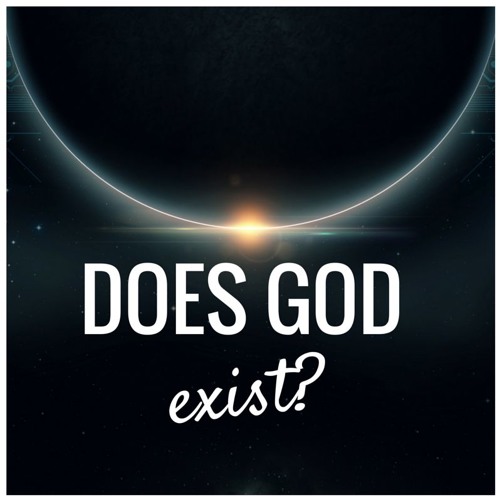EDUCATING FOR LIFE: REFLECTIONS ON NATIONAL PEACE AND SECURITYY
By
Pastor Dele Ilesanmi (PhD)
“I will both lie down and sleep in peace, for You alone, LORD, make me live in safety.” (Psalms 4:8, HCSB)
Introduction
No doubt, so much discussions and conferences have been held and much has been written on the issue of national peace and security world over. The spate of insecurity around the world today, cascading in torrents, calls for concern and makes it crystal clear that the present world is incapable of dispensing peace and curbing or stemming insecurity.
The Capsule Reality
It is evidently clear that the daily manifestation of gruesome killings, obnoxious kidnappings, molestations, rapes, arsons, wanton destruction of property with impunity are signs of a failed nation-state. All these poignant leanings are not companions of peace and security or safety. Peace and safety are absent in a nation where one cannot sleep in one’s house with two eyes closed without being afraid of attack. Peace and safety are no more in a country where institutions of learning, banks, companies, markets, farms, palaces and churches are objects of attack every day. Our roads are no more safe. Going in a car to your office is risky. Walking on the road to your home or place of work is dangerous. Going to the contiguous or adjoining street or town to visit your friends or attend a meeting is not advisable. You cannot send your child on an errand to a neighbour’s house without entertaining fears. There is palpable fear in the land. No one can predict the next line of actions of the assailants, or rather the bandits.
Without economizing the truth, there is a systemic collapse in all sectors of the economy. Things are in state of imbroglio. The security apparatus has failed. The military power has been weakened and the intelligence agencies of all the nations of the world are confused. The centre cannot hold again. The governments at all levels have used all the weapons in their arsenals to curb the spate of insecurity but to no avail. The security and intelligence professionals are in total disarray. The proposals, theories and hypotheses for panacea from the ivory towers are nothing but irrelevant to the real situation. Now the whole world has caught cold and sneeze from the shambolic water of insecurity. Having tried all the necessary available options to us with little or no result, we are only left with one option: JESUS. He is our Prince of Peace (Isa.9:6) and the only Hope of our safety (Prov.21:31).
Concise Concepts of Peace and Security
Peace and security have attracted many definitions. Though, this is not strange given the appalling trend of acrimony and insecurity around the world today. Without recourse to academic jargons, peace and security or safety can be lexically explained. Peace is a “state of tranquility, quiet, and harmony”. It is an “absence of violence”; and “cessation of war”; freedom from oppression and attacks. Safety, on the other hand, is the condition of being secured, protected, and freed from attacks. National security is the ability of a nation-state to cater for the protection and defence of its citizenry.
This national security covers many other things such as political security, economic security, homeland security, energy and natural resources security, cyber security, human security ( includes peoples’ safety from hunger, disease and repression include harmful disruption of daily life.), among others. In summary, national security is the safekeeping of the nation as a whole. And without this national security there will not be national peace. Thus peace is predicated on security. When there is no security, there will be no peace. But the giver of both is JESUS.
In His own comfortable skin, Jesus, the only hope of our peace and safety, encapsulates the concept of peace in Matt.5:38-41 thus:
38Ye have heard that it hath been said, An eye for an eye, and a tooth for a tooth: 39 But I say unto you, That ye resist not evil: but whosoever shall smite thee on thy right cheek, turn to him the other also. 40 And if any man will sue thee at the law, and take away thy coat, let him have thy cloke also.41 And whosoever shall compel thee to go a mile, go with him twain.
This is a very hard thing to do as human beings. However, this is not hard for people who have the mind of Christ (1Cor.2:16; Phil.2:5-8). Jesus wants peace not rewarding evil with evil. He wants us to eschew evil and do good, and pursue peace (1Pet.3:11 cf.2Tim.2:22). He wants jaw-jaw and not “war-war”. In Romans 14:19, Paul said “Let us therefore follow after the things which make for peace, and things wherewith one may edify another.”
Here is the Right Solution:
Secular Views: Quasi Solutions
In his popular book, “Philosophy of Christian Education: An African Perspective”, Prof Joseph Ilori identifies three methods by which we may seek to solve the world’s problems. The first method is revolution, which means, violent upheaval. This may cause a sudden change in government and society. The great educators like Socrates, Erasmus, and Tolstoy believed that change must come from within, such change must be predicated on ethical principles. The second method, according to Ilori, is war. It is believed by Heraclitus in Greece that “war is the father of all things and that it creates the seed for progress”. Hegel made a declaration that “war decides the destiny of the world”. In his response to war, Nietzsche said “war is the essence of civilization”. Ilori mentioned Christian education as the third option for solving the world’s problems. He illuminates that Christian education “works slowly, in an evolutionary manner. It creates no sudden utopias. It offers no magic remedies. It gives no categorical promises. It demands effort and discipline. It awakens man to his own creative possibilities’. He concludes that Christian education is man’s most formidable tool for survival.
According to Winston Churchill, “to jaw-jaw is always better than to war-war”. In his own view, Benjamin Franklin said, “There never was a good war or bad peace”. In other words, peace is peace and is better than war because war always has side effects but not peace.
Biblical Views: Right and Reliable Solution
As divinely pointed out by the king of Israel, Solomon, the son of David, safety is the exclusive power of God: “The horse is prepared against the day of battle: but safety is of the LORD” (Prov.21:31). The safety of the world and Nigeria is the Lord. The horse, the weapons, the security apparatus and military intelligence cannot save us – they are not reliable. The Psalmist said in Psalms 33:17, “An horse is a vain thing for safety: neither shall he deliver any by his great strength.” Thus the safety of any nation is the Lord. This can be corroborated by a song of degrees earlier sang for Solomon in Psalms 127:1: “…except the LORD keep the city (nation), the watchman waketh but in vain.” This implies that human efforts are useless without God – only God can protect a nation. Hence, King Solomon, the wisest man ever lived on earth, submits in Eccl.7:12 that wisdom and true (Christian) education are better than money (or weapons), even though money is important: “For wisdom is a defence, and money is a defence: but the excellency of knowledge is, that wisdom giveth life to them that have it.” Thus, it is imperative for all the nations of the world to seek Wisdom first because this Wisdom is Christ Jesus, who is the power and Wisdom of God (1Cor. 1:24).
The right solution to our problems of lack of peace and insecurity is here and can only be found in JESUS. Jesus is the dispenser of peace not the world. In John 16:33, He (Jesus) says, “These things I have spoken unto you, that in me ye might have peace. In the world ye shall have tribulation: but be of good cheer; I have overcome the world.” It is only in Him we can have our peace and not in any one. This is a very clear statement from the Prince of Peace Himself. He is the conduit through which our peace can be secured. In Rom.5:1, Paul, the apostle testifies to this: “Therefore being justified by faith, we have peace with God through our Lord Jesus Christ:”
Jesus is not a religion but a Saviour (Matt.1:21); Jesus is not a man but the Prince of peace (Isa.9:6); Jesus is not a method but the Preacher of peace (Eph.2:17); Jesus is not a mere historical figure but our Peace (Eph.2:14). Jesus is not only the Life but the Life and Light of all men (John 1:4; cf. 1:9; 8:12; 9:5).
Conclusion
Perfect peace is possible for anyone (or nation) who wishes to accept Jesus Christ into his/her life. A nation that is ready for peace will be ready to accept Jesus Christ. That is the only way to enjoy peace – that is the only lasting solution to intractable problems confronting our national peace and security. The Book of Isa.26:3 is our witness: If anyone stays in Christ “Thou wilt keep him in perfect peace, whose mind is stayed on thee: because he trusteth in thee.” Therefore, the only way out of this mess in our national life is to run to Christ, only in Him our peace and safety can be guaranteed (Prov.18:10 cf. Acts 4:12). Though this goes beyond religious inclination, we have not heard any genuine Christian who is a terrorist – who kills innocent people in the name of a religion. Anyone who has the mind of Jesus cannot terrorise his nation. Jesus is not a religion but the Life (John 1:4; 11:25). Accept Him today to have your lasting peace and security. This education for life is coming to a people or a nation that lacks the TRUE EDUCATION, not the type we receive in our secular schools but the one that can engender lasting peace and security. The education that is Bible based, Christ centred, Holy Spirit controlled, life applied, and socially relevant. The education that produces peace, and not terrorism and banditry. May your spiritual eyes of understanding be enlightened in Jesus’ name (Eph.1:18).
To spiritually and imaginatively enter Paul’s world, I therefore pray that may the God of peace be with you all in all nations of the world and in Nigeria. Amen (Rom.15:33).



